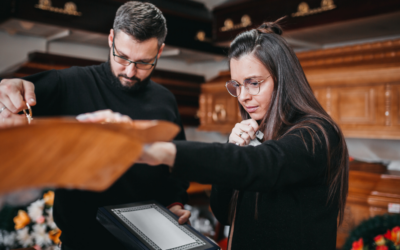Networking is an indispensable part of career growth, no matter the industry. However, in a field as unique and emotionally charged as funeral services, building professional connections takes on a deeper meaning, fostering collaboration and supporting a shared mission of service. For alumni of funeral services programs, networking can open doors to mentorship, career advancement, and a powerful sense of community that enhances both professional and personal fulfillment.
This blog will guide you through strategies to build and sustain a professional network that resonates with your needs—whether you’re a recent graduate embarking on your first role, a career changer navigating a new industry, or a seasoned professional looking to expand your reach.
Understanding Your Audience
Before building your network, it’s crucial to understand your own needs and motivations—and the unique landscape of the funeral services industry.
Recent Graduates
As a recent graduate, you’re likely focused on finding your first role, getting hands-on experience, and building credibility. Networking can help you connect with professionals who can guide you, refer you, and help you build confidence in this critical early stage of your career.
Career Changers
Transitioning from another profession such as healthcare or social work? It’s likely you already have valuable connections in related fields. Your goal is to leverage those while building specialized relationships within funeral services. This blend of backgrounds can make you a unique and sought-after professional.
Veterans in the Industry
For established professionals, maintaining and expanding your network helps you stay current with trends, connect with rising talent, and find opportunities to give back to the industry. Active engagement ensures your professional legacy grows along with your career.
Building Your Network as a Recent Graduate
The transition from student to professional represents a critical time for networking. Here’s how you can get started effectively.
Leverage Your College Alumni Network
Most funeral service education programs maintain active alumni networks. Reach out to your alma mater and ask to join alumni events, LinkedIn groups, or mentorship programs. Shared experiences in the classroom create a natural bond, one you can build upon for future collaboration.
Attend Industry Events
Industry conferences and local funeral service gatherings offer an excellent chance to meet professionals face-to-face. Don’t be afraid to introduce yourself—most attendees remember starting out and are happy to offer advice.
Seek Mentorship
Finding a mentor is one of the most impactful ways to grow. Reach out to professionals you admire (alumni or otherwise), and express your interest in learning from their experiences. Be specific about what you’re seeking—whether it’s career advice, technical guidance, or insight into the challenges of funeral service work.
Networking for Career Changers
Switching industries requires special effort but also offers distinct advantages. By blending your existing skills with new opportunities, you’ll find success with these strategies.
Transfer Your Existing Network
Your previous career connections may lead you to unexpected opportunities. For example, if you were a hospice worker, those relationships could connect you with local funeral directors. Reach out, share your career shift, and don’t hesitate to ask for introductions.
Conduct Informational Interviews
Informational interviews allow you to meet industry insiders without the pressure of formal job interviews. These conversations help you understand roles better and increase your visibility within your target industry.
Build a Support System
Surround yourself with like-minded professionals. Whether through industry webinars, workshops, or niche community groups, connecting with others on similar journeys can offer insights and encouragement.
Networking as a Veteran in the Industry
For seasoned professionals, networking is less about building your base and more about continually evolving and staying relevant.
Staying Connected
Reconnect regularly with peers, leaders, and even former employees. Attending reunions, commenting on LinkedIn updates, or simply checking in with former co-workers can keep relationships fresh.
Participate in Industry Associations
Associations like the National Funeral Directors Association (NFDA) provide a platform for networking at a higher level. Attend their events, volunteer to host workshops, or join committees to gain leadership visibility while giving back to the field.
Mentor the Next Generation
Sharing your wisdom with young professionals or career changers isn’t just fulfilling—it strengthens your reputation as an industry leader and expands your professional reach for the long term.
Digital Networking Strategies for All Segments
The advent of digital platforms makes networking more accessible and less intimidating, regardless of your stage in life.
Utilize LinkedIn Effectively
LinkedIn is a must-have tool for growing your professional network. Keep your profile updated with your alma mater and accomplishments, actively engage with your feed, and connect with industry professionals. Share relevant posts or articles to showcase your expertise.
Build an Online Personal Brand
Create content that demonstrates your thought leadership in funeral services. This could be a short article about industry challenges, tips for newcomers, or interesting insights into modern trends like green burials. Authenticity builds trust, and you never know when your post might resonate with someone important.
Join Online Communities
Participate in online forums or Facebook groups dedicated to the funeral service profession. Meaningful engagements here can transition into useful offline connections.
Measuring and Evaluating Your Networking Success
Effective networking isn’t a one-and-done effort—it’s an ongoing process requiring strategic reflection.
Set Networking Goals
Define clear, measurable goals for your networking efforts. For instance, you might aim to connect with three new professionals each month or attend two industry events per year.
Track Your Progress
Maintain a spreadsheet or notebook tracking connections and opportunities arising from networking. This helps you identify patterns and adjust strategies accordingly.
Reflect and Evaluate
Ask yourself regularly if your network is delivering value. Are you gaining new insights or opportunities? If not, consider diversifying your connections or engaging more actively.
Grow Together
Networking is a lifelong skill, one particularly critical in the funeral services industry, where personal connections and trust play such a central role. Whether you’re just starting out, transitioning into the field, or amassing a legacy, a strong professional network will elevate your career in immeasurable ways.
At Pierce Mortuary Colleges, we strive to equip you with more than just technical knowledge—our goal is to empower you with the tools to build meaningful careers and communities. Explore our Alumni Network and Career Resources to connect with like-minded professionals and take the next step in your career journey.




